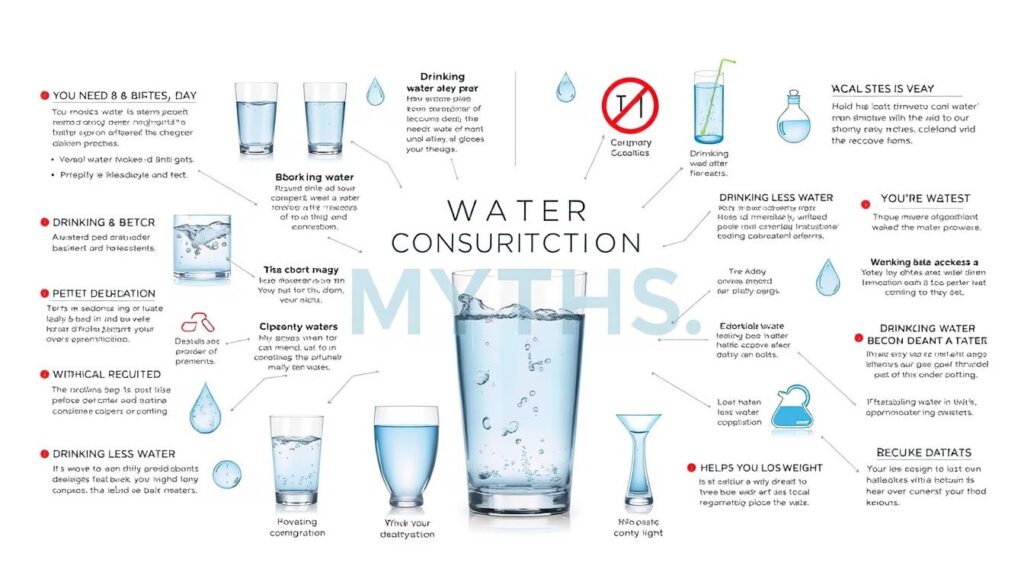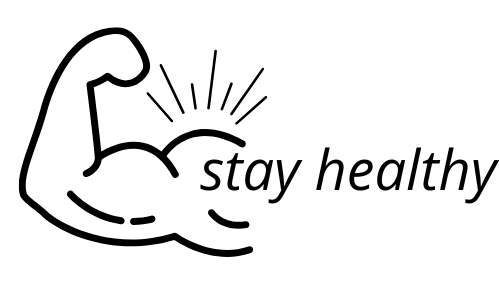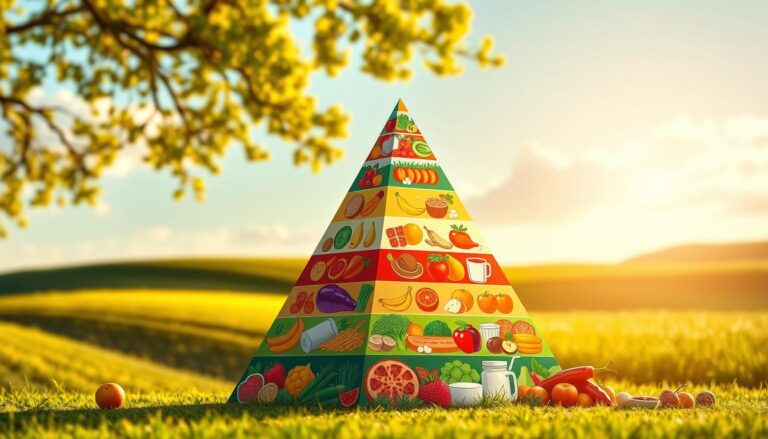How much water should you have a day : The Ideal Daily Water Intake for Your Health
Water is more than just a drink; it’s essential for your body. Every cell, tissue, and organ needs water to work right. Knowing how much water should you have a day can boost your health and energy.
The human body is about 60% water. This makes drinking enough water every day very important. Your hydration affects your mind and body. Whether you’re an athlete or just want to stay healthy, knowing how much water you need can change your life.
Experts say men should drink about 125 ounces of water a day, and women about 91 ounces. But these are just starting points. Your body might need more or less based on your own health.
Table of Contents
Understanding Your Body’s Water Needs
Water is key to life, making up about 60% of our bodies. It’s vital for many functions, so knowing how much we need is important. A water needs calculator can guide you to the right amount and help you stay hydrated.
Water is essential for our bodies. It’s in most of our vital organs, like the brain and heart. This shows how important it is to drink water all day.
Essential Water Functions in Your Body
- Regulates body temperature
- Transports nutrients and oxygen to cells
- Supports digestive processes
- Lubricates joints
- Protects sensitive tissues
Factors Influencing Water Requirements
How much water you need varies. Several things affect your hydration:
- Age: Your needs change as you get older
- Body weight: Bigger people need more water
- Activity level: More exercise means more water
- Climate: Hot weather means you need more
- Overall health: Some health issues affect how much water you need
Recognizing Proper Hydration
It’s important to know when you’re hydrated. Light yellow urine means you’re good. Darker colors mean you need more. Drinking water all day and listening to your body’s thirst is key.
Remember: Your body can survive weeks without food, but only days without water.
How Much Water Should You Have a Day
Knowing how much water to drink daily is key for good health. The amount needed varies by several factors. Yet, there are general guidelines to help you stay hydrated.
Your water needs depend on your weight, how active you are, and your health. A good way to figure out your daily water is to use your body weight.
- For every kilogram of body weight, aim for approximately 35ml of water
- Body weight calculations provide a personalized hydration guide
- Individual needs may vary based on lifestyle and environmental conditions
Here’s how much water you might need based on your weight:
| Body Weight | Recommended Daily Water Intake |
|---|---|
| 72 kg (159 lbs) | 2.5 liters |
| 85 kg (188 lbs) | 3.0 liters |
| 100 kg (220 lbs) | 3.5 liters |
Pro tip: Keep in mind that your total fluid intake includes water from drinks and food. About 20% of your daily fluid comes from food. So, adjust your drinking habits accordingly.
Signs you’re drinking enough water include clear, light-colored urine and feeling full of energy all day. Listen to your body and drink when you feel thirsty. This helps you stay hydrated.
Benefits of Proper Hydration for Overall Health
Keeping your body hydrated is key for it to work its best. Water is essential for your physical and mental health. Knowing how hydration helps can encourage you to drink more water and boost your health.
Physical Performance Enhancement
Drinking enough water boosts your physical abilities. It can make you perform better in sports and last longer. Water helps:
- Regulate body temperature during exercise
- Lubricate joints
- Prevent muscle cramps
- Boost energy levels
Mental Function and Mood Optimization
Your brain works better when you’re hydrated. Mild dehydration can harm your thinking and memory. Drinking enough water improves:
- mental clarity
- reduces fatigue
- stabilizes mood
- boosts brain function
Digestive Health Support
Water is vital for a healthy stomach. Drinking enough water can prevent many stomach problems:
| Digestive Benefit | Impact |
|---|---|
| Prevents Constipation | Helps soften stool and promote regular bowel movements |
| Supports Nutrient Absorption | Assists in breaking down food and transporting nutrients |
| Maintains Gut Microbiome | Helps create optimal environment for beneficial bacteria |
“Water is the driving force of all nature.” – Leonardo da Vinci
By focusing on hydration, you can gain many health benefits. Drinking enough water is a simple yet effective way to improve your health.
Recommended Water Intake Guidelines by Age and Gender
Knowing how much water you should drink is key to staying healthy. The amount of water you need changes with age and gender. This is because everyone’s body is different.
Several things affect how much water you should drink. These include your age, weight, how active you are, and your health. Here’s a detailed look at how much water you might need:
| Age Group | Daily Water Intake |
|---|---|
| Infants (6-12 months) | 4-8 ounces |
| Children (1-8 years) | 1-5 cups |
| Adolescents | 7-8 cups |
| Adult Males | 13 cups (3.1 liters) |
| Adult Females | 9 cups (2.1 liters) |
| Pregnant Women | 8-12 cups (64-96 ounces) |
| Breastfeeding Women | 16 cups daily |
For older adults, aged 51 and up, the water intake is similar:
- Males: 13 cups daily
- Females: 9 cups daily
Pro tip: Your body’s water needs can change. This depends on the weather, how active you are, and your health. Pay attention to how you feel and adjust your water intake as needed.
Staying hydrated isn’t just about drinking water—it’s about keeping your body working at its best.
Signs and Risks of Dehydration
Dehydration can sneak up on you quickly, impacting your body’s critical functions. It’s important to know the signs and keep your hydration levels right for your health.
Your body sends clear signals when it’s not getting enough water. Spotting these signs early can prevent serious health problems.
Early Warning Signals
- Persistent thirst
- Dark yellow or amber-colored urine
- Dry mouth and lips
- Feeling sluggish or tired
- Decreased urination frequency
Health Complications
Severe dehydration can lead to serious health risks. Losing more fluid than you take in can cause:
| Severity Level | Potential Complications |
|---|---|
| Moderate Dehydration | Headaches, dizziness, muscle cramps |
| Severe Dehydration | Kidney problems, seizures, heat injury |
“Your body can survive weeks without food, but only days without water.” – Medical Hydration Research
Prevention Strategies
- Drink water regularly throughout the day
- Monitor your urine color
- Increase fluid intake during exercise
- Consume electrolyte-rich beverages in hot weather
- Eat water-rich fruits and vegetables
Remember, prevention is always better than cure. By staying aware of your body’s hydration needs, you can avoid the dangers of dehydration.
Sources of Hydration Beyond Plain Water

Drinking plain water isn’t the only way to stay hydrated. Foods and drinks also play a big role. Knowing these sources can help you stay hydrated all day.
Fruits and vegetables are full of water. Here are some examples:
- Cucumbers: 96% water content
- Iceberg lettuce: 95.6% water
- Celery: 95% water
- Tomatoes: 94% water
- Watermelon: 92% water
Beverages are also important for staying hydrated. While water is key, other drinks help too:
- Herbal tea
- Milk
- Coconut water
- Fresh fruit juices
- Electrolyte-enhanced drinks
About 20% of your daily water comes from food. So, eating hydrating foods and drinks matters a lot.
Pro tip: Aim to include a variety of water-rich foods and drinks in your diet for better hydration.
Remember, different foods and drinks offer different amounts of hydration. Some, like cucumbers, have a lot, while others have less. The goal is to mix it up for better hydration.
Special Hydration Needs for Different Activities
Your body’s water needs change a lot based on what you do, where you are, and your age. Knowing these special needs helps keep you healthy and performing well.
Exercise and Sports Hydration
For athletes and those who work out, staying hydrated is key. A water needs calculator can figure out how much water you should drink. The American Council on Exercise gives some rules:
- 2-3 hours before exercise: 17-20 ounces of water
- During warm-up: 8 ounces
- During exercise: 7-10 ounces every 10-20 minutes
It’s important to keep track of how much water you drink during hard workouts. Sweat rates can be different for everyone, so finding what works for you is important.
Hot Weather Hydration Challenges
When it’s very hot, your body needs more water. High heat and humidity make you lose water faster. It’s important to drink water often when it’s hot.
Pregnancy and Nursing Hydration
Women who are pregnant or nursing have special hydration needs:
- Pregnant women: 80 ounces (10 cups) daily
- Breastfeeding women: Up to 104 ounces (13 cups) daily
Drinking enough water is important for both mom and baby. It helps with health and growth.
Common Myths About Water Consumption

Understanding how much water we need can be tricky. Many common beliefs about drinking water are not true. Let’s clear up some myths that might confuse you about staying hydrated.
- Myth: You Must Drink 8 Glasses of Water Daily
The “8×8 rule” isn’t supported by science. How much water you need depends on your weight, how active you are, where you live, and how your body works.
- Myth: Caffeine Always Dehydrates You
But, drinking a bit of caffeine doesn’t really dry you out. Studies say you can drink up to 4 cups of coffee a day without getting dehydrated.
- Myth: Clear Urine Means Perfect Hydration
Even though clear urine can show you’re drinking enough water, it’s not always a good sign. A light yellow color is usually a sign of good hydration.
“Hydration is personal – there’s no one-size-fits-all approach to water consumption.” – Nutrition Experts
It’s important to know what your body needs. Things like your age, gender, how active you are, and where you live affect how much water you should drink. Don’t follow general rules—listen to your body.
The goal is to find a balance in staying hydrated. Eating foods with a lot of water, knowing your body’s needs, and how active you are all help keep you hydrated. Stay informed and hydrated, but don’t go too far.
Conclusion
Figuring out how much water you need each day is more than a simple rule. It’s about listening to your body and building healthy habits. Your water needs change based on your age, how active you are, the weather, and your health.
While experts say men should drink 13 cups and women 9 cups, your needs might be different. It’s important to remember that staying hydrated is not just about drinking water. It’s also about eating foods that help you stay hydrated and paying attention to your body’s signs of thirst.
Your health is a journey, and staying hydrated is key to feeling good. Talking to a doctor can help you understand how much water you really need. Listen to your body, be open to changing your habits, and make drinking water a regular part of your routine for the best health.







